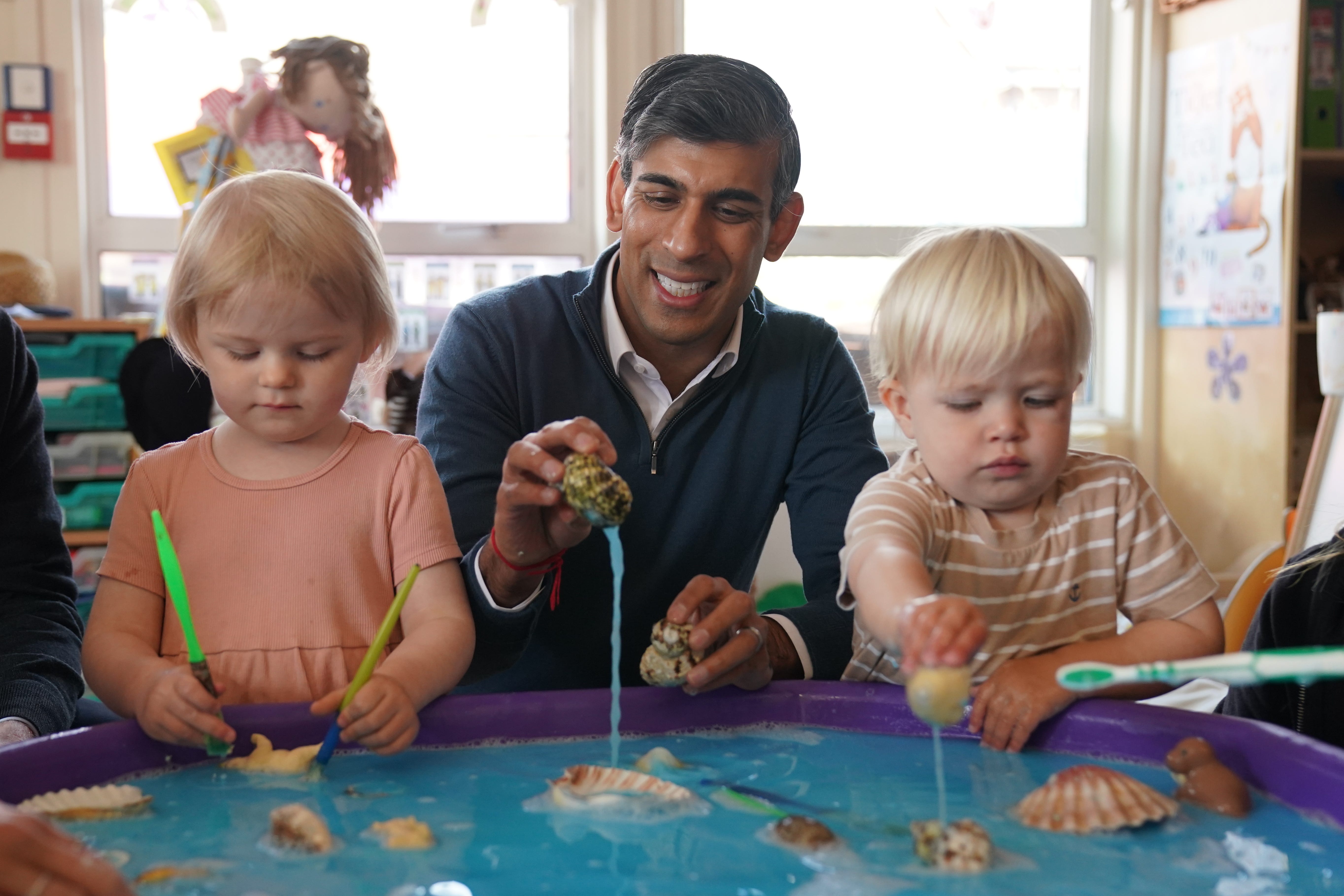Which party’s childcare promises are worth your vote?
How exactly are parents being wooed by the main parties at this election? It’s not too late to find out – and could really be worth your while, says childcare campaigner Joeli Brearley


It was only a decade ago that childcare became a general election battleground. The situation then was almost identical to today – places were dwindling, costs were skyrocketing, parents were forced out of their job and onto benefits due to a completely dysfunctional system.
A three-way duel between David Cameron, Ed Miliband and Nick Clegg began in earnest. The Lib Dems pledging 20 “free” hours of childcare per week. Labour pledged 25. Finally, the Conservatives pulled out the prize courgette, offering parents 30 “free” hours of childcare per week for eligible children over three years old. And for your average voter, that’s all they heard.
At the time, I was the proud new parent of a one-year-old son with another on the way, so childcare pledges landed squarely in my wallet, affecting pretty much every element of my life. Yet, I am ashamed to admit, the detail of the parties’ promises passed me by. I was beguiled by their simplicity.
And we all know how that ended. The Tories formed a government, and the 30 ‘free’ hours a week of childcare was delivered – but the charities and campaigners who repeatedly said their plans were underfunded and risked causing more problems for the sector, and for parents, were right.
Now, almost 10 years later, 1.7 million mothers are working fewer hours than they would like due to childcare costs or availability, more than half of nursery workers are on the brink of quitting their job, and we’ve lost thousands of childcare places due to nurseries experiencing financial issues. According to the Family and Childcare Trust, the cost of sending a two-year-old to nursery has risen by 26 per cent, from an average of £6,003 a year to a staggering £7,569 a year for a part-time place.
It turns out that headline-grabbing childcare pledges which sound terrific to voters during an election campaign require a lot more scrutiny before we give them our support.
Which brings us to this election. Who should a parent vote for – and who should they believe?
The Conservatives have committed to extending their offer of 30 “free” hours of childcare a week to cover 38 weeks of the year, and to include all eligible children from the age of nine months. But parents are now more attuned to the flaws inherent in the plan. A plan that does nothing to improve the sustainability of the sector, the working conditions of our precious childcare professionals, or the quality of childcare on offer. The word “free” has subsequently been dropped by most journalists, and even, on occasion, the Department for Education, who appreciate that many providers are making up the shortfall in government funding which is bankrupting their business, and parents are still paying for the subsidized hours through a consumables charge.
Other political parties have made some grandiose promises about childcare, with the shadow education secretary, Bridget Philipson, suggesting Labour’s childcare plan would be as transformative as the birth of the NHS. And that would be true if Aneurin Bevan had only built hospitals but given little thought to the staff that would work in them.
Labour’s manifesto commits to delivering on the 30 funded hours of childcare for eligible children from nine months’ old while increasing the number of spaces on offer by 100,000. Who knows where the workers will come from to run these new nurseries, and to care for the small humans they will accommodate. Perhaps we will open a window and 50,000 highly trained childcare professionals will fly through it like Mary Poppins…
The Liberal Democrat manifesto also commits to delivering the 30 funded hours promised by the Conservatives – but they promise to review the rates paid to providers and develop a career strategy for the workforce. Neither of these plans are costed, and there are no metrics from which we can assess success.
The Greens have promised to increase the 30 funded hours of childcare to 35 funded hours, which feels very 2015 – bring out the prized courgettes!
To be clear, I am not complaining about ambition, we desperately need ambition if we are to have any hope of fixing the childcare mess in this country; but I think it is perfectly reasonable to treat these promises with scepticism, given the track record of electoral pledges on this issue.
The thing is, fixing our childcare system is a complicated affair. If it were easy, it would have been done years ago. Not a single country has cracked this problem entirely, though most have got much closer than we have. The model used in Sweden, for example, has shown huge improvements in child development but does little for maternal employment; while the model used in Canada has seen maternal employment increase to a record high of 85.7 per cent since costs reduced to $10 a day, but some studies show a negative impact on child development and parents complain that it is harder to find a childcare place than before the new subsidy was introduced.
Ultimately, the devil is in the detail, but right now that detail consists of a few lines on a digital document. Not a single political party seems to have got to grips with the fact that, rather than trotting out the same old benefit systems for childcare, perhaps we need to test new ways of doing things. Particularly when we know that the model we are using excludes students and those who are training (you know, like trainee nurses and teachers), and it disproportionately benefits those on higher incomes who have the least to benefit from an affordable, good quality childcare system. Right now, we are buying new shoes while our feet develops gangrene.
At Pregnant Then Screwed, the charity I founded to help end the motherhood penalty, we are calling on the new Government to move to a single benefit system for childcare (rather than the eight benefit systems that currently exist), where costs are no more than 5 per cent of household income and providers are given a 20 per cent uplift on their hourly rates.
Our model is progressive – the more you earn, the more you pay – and unlike the current system, it would ensure those on the lowest incomes (who have the most to benefit from affordable childcare) are able to access what they need to survive and thrive. Families of twins and triplets would no longer be priced out of childcare and single parents earning over a certain amount wouldn’t be unfairly penalised.
Radical, thoughtful reform is what we need – but it seems to be overlooked at this election.
Joeli Brearly is founder and director of the charity Pregnant Then Screwed





Join our commenting forum
Join thought-provoking conversations, follow other Independent readers and see their replies
Comments